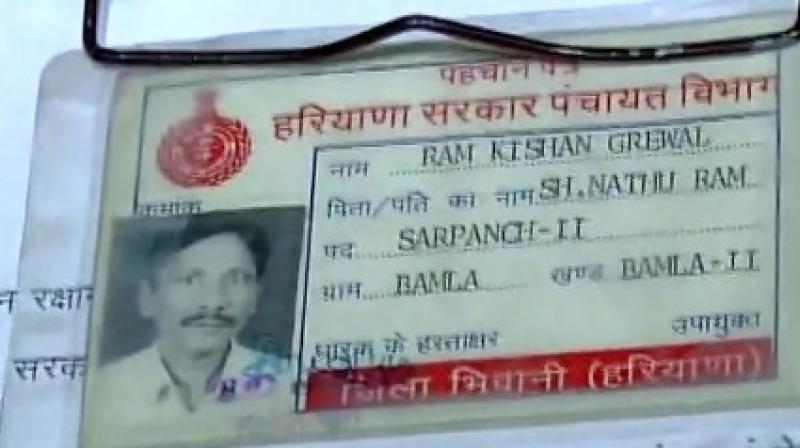Orop: Key questions of governance arise

The circumstances relating to Wednesday’s suicide in New Delhi by a 70-year-old retired Army havildar, Ram Kishan Grewal, from Haryana’s Bhiwani, over the One-Rank-One-Pension issue raises important concerns about the present system of governance in India, and the way those running the government deal with Opposition parties and respond to being publicly questioned. The decorated retired soldier took poison to end his life as he was deeply frustrated, and probably depressed, that the government claimed to have delivered on its promise to implement Orop when it is yet to do so. Questions are therefore apt to be raised on the quality and accuracy of public pronouncements by the government.
In the aftermath of the September 28-29 “surgical strike”, the government has sought to project itself as a tireless champion of soldiers’ welfare and their honour — going to the pernicious extent of questioning the patriotism of individuals and political parties that seek to interrogate it on these and related matters. But the story came unstuck when a section of Army veterans resumed their protest over the non-fulfilment of assurances regarding Orop. From the highest levels of the government it was then said that it had kept its word to the extent of committing Rs 5,500 crores per year when the estimated expenditure to cover the entire project was expected to be Rs 8,000 crores. This was indication enough that the government’s earlier claim had been misleading.
In fact, the Congress-led UPA too had wrestled with the fitment and related issues in rolling out a full-fledged Orop that would satisfy ex-servicemen. This had been disparaged by the BJP’s then PM candidate Narendra Modi in the 2014 Lok Sabha poll campaign. Thoroughly politicising the issue, Mr Modi had said only his party truly cared for the armed forces and would implement Orop within a certain timeframe. But his government too continues to wrestle with the complicated question. Congress vice-president Rahul Gandhi, several top party leaders, as well as Delhi chief minister Arvind Kejriwal and his deputy Manish Sisodia were detained by the Delhi police when they sought to meet the family of the ex-serviceman who took his own life.
Day-long commotion followed in the nation’s capital on Wednesday as a result. The message was clear: the Opposition parties will not be permitted to make their protest public. This strikes at the very root of a functioning democracy. If this weren’t bad enough, the family of the deceased were apparently also forcibly stopped from coming out of the hospital to meet Mr Gandhi, who had gone there alone so as not to create a public nuisance. In a show of police high-handedness, the late soldier’s son was also detained for a while to stop him meeting the Opposition leaders.

